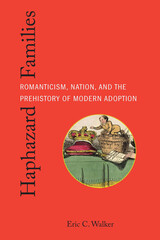
Since first reported to the world in 1780, the death of Captain Cook on a Hawaiian beach the previous year has been revered, celebrated, and shrouded in mystery. Simultaneously called a hero and an antihero, a ruthless invader, and a torchbearer of the Enlightenment, Cook’s reputation grew as much out of the moving story of his death as out of his adventures while he lived.
In a style that is more detective story than conventional biography, Glyn Williams explores the multiple narratives of Cook’s death. He reveals how the British Admiralty first attempted to censor accounts of Cook’s erratic behavior and how the “authorized” version of his death—a lengthy narrative serialized in the leading publications of the day—reduced the story to the final hours of a noble leader who gave his life to save others. Williams argues that the contrary evidence of a chaotic bloody fracas on the beach at Kealakekua Bay was ignored, and that the unexplained disappearance of Cook’s own journal helped the process of concealment. He believes that Cook was not entirely the man sanctified by the British public. More than two hundred years later, an explosive interplay between academic controversy and nationalist feelings has once more drawn attention to a life that has attracted praise and controversy, abhorrence and admiration. In short, Williams examines the story of Cook’s progress from obscurity to fame and, eventually, to infamy—a story that, until now, has never been fully told.

In 1777 Edmund Burke remarked that for his contemporaries “the Great Map of Mankind is unrolled at once.” The period from the late seventeenth century to the end of the eighteenth century had seen a massive increase in Britain’s knowledge of the non-European peoples of the wider world, and this was reflected in the proliferation of travel accounts of every kind.
This is a history of British perceptions of the exotic peoples and lands of Asia, North America, West Africa, and the Pacific who became well-known during that great age of exploration. It shows how the contours of intellectual and cultural history changed as news poured in. Philosophers contemplated man in a state of nature; the study of religion was broadened as Hinduism, the naturalistic religions of North America, and Chinese rites and ceremonies were revealed. Racial issues like slavery and negritude, questions about advanced versus backward nations, the great Chain of Being argument, and the Unchanging East theory became concerns of educated persons. Along with the impact of explorations on men’s ideas, the use of “sciences” like anthropology, ethnology, archeology, and philology came into vogue. And not incidentally, interest in empire grew, missionary zeal was strengthened, and tolerance and intolerance toward strangers struggled for dominance.
It could be argued that by the end of this age of “enlightenment,” investigation of the inhabitants of these distant lands had reinforced those assumptions of superiority that were an essential feature of British global expansion. To that extent this book is concerned with the intellectual foundations of the second British empire, for it seeks to show how many of the attitudes present in Britain’s dealings with the world in her imperial heyday were formulated during the eighteenth century.
READERS
Browse our collection.
PUBLISHERS
See BiblioVault's publisher services.
STUDENT SERVICES
Files for college accessibility offices.
UChicago Accessibility Resources
home | accessibility | search | about | contact us
BiblioVault ® 2001 - 2024
The University of Chicago Press









